Public Project
Beekeepers
Summary
Brazilian women blend genetic enhancement with ancestral land care, pioneering as the region's first female beekeepers.
The beekeepers
The decline and mass death of bees aren't recent phenomena, but they've become quite alarming lately. In just two days in 2023, at least 100 million bees suddenly perished in Brazil. The indiscriminate use of pesticides is considered one of the primary suspects.Bees play a crucial role in pollinating around 70% of food crops, and their demise jeopardizes global agriculture and food security. Moreover, they are vital for pollinating forests, and their disappearance may trigger the demise of entire ecosystems.
Since 2018, a group of female farmers from the Pernambuco forest zone has been blending genetic enhancement techniques with agroecological ancestral wisdom to discover sustainable methods of nurturing and safeguarding bees.
Their endeavor began upon their arrival at the Ximenes settlement in Barreiros, Pernambuco state, in northeastern Brazil. They had been displaced from their homes due to the expansion of the Suape port area farther north.
The new settlement provided by the government was surrounded by an extensive sugar cane plantation. The soil was infertile, there were no paved roads, schools, or health centers in the area, and housing was precarious. The region was often flooded by the local river.
With limited options for cultivation, the women sought assistance from the local university to learn beekeeping. Collaborating with the Federal Rural University of Pernambuco, they became the first female beekeepers in the region, a job that until then had been performed only by men. The university provided them with protective suits, and beehives, and taught them genetic enhancement techniques to produce high-quality pesticide-free honey.
With the money obtained from honey, they gained a new profession and financial independence. Combining the money from honey sales, the women promoted a new sustainable dynamic in the community. To attract more bees, they began planting native crops around their homes using techniques passed down by their ancestors, transforming their backyards into agroecological oases with flowers, trees, and crops.
Today, from their once unproductive lands, bloom flowers, fruits, vegetables, and about 1 ton of high-quality honey per year. This highlights how modern practices like bee genetic improvement, combined with ancestral land care, can generate income in vulnerable communities and restore ecosystems on the planet.
As guardiãs de abelhas
O desaparecimento e a morte massiva de abelhas não é um fenômeno novo. Porém, nos últimos anos atingiu números alarmantes no Brasil. Em apenas três meses de 2019, pelo menos meio bilhão de abelhas morreram repentinamente. Entre as principais suspeitas está o uso indiscriminado de agrotóxicos.As abelhas são responsáveis por aproximadamente 70% da polinização das plantas cultivadas para alimentação, e sua morte coloca em risco a agricultura e a segurança alimentar em todo o mundo. Além disso, elas são essenciais para a polinização das florestas nativas e seu desaparecimento pode provocar a morte de ecossistemas inteiros.
Para preservar essas espécies, desde 2020, um grupo de mulheres agricultoras da Zona da Mata pernambucana tem combinado técnicas de melhoramento genético com conhecimentos ancestrais para buscar formas sustentáveis de criação e proteção de abelhas.
Trabalhando em parceria com a Universidade Federal Rural de Pernambuco, elas se tornaram as primeiras apicultoras da região, um trabalho até então realizado apenas por homens. Com o dinheiro obtido com o mel, conquistaram uma nova profissão e também sua independência financeira.
Além da renda, o projeto gerou uma nova dinâmica na comunidade. Para atrair mais abelhas, o grupo de mulheres começou a resgatar técnicas de plantio sustentáveis e a transformar o entorno de suas casas, áreas antes não produtivas, em oásis agroecológicos.
Hoje, flores, frutas e mel de alta qualidade e sem agrotóxicos brotam de seus quintais, demonstrando que práticas modernas como o melhoramento genético das abelhas aliadas a rituais ancestrais de cuidado com a terra podem ser a chave para a geração de renda em comunidades vulneráveis e para a restauração dos ecossistemas do planeta.
4,856

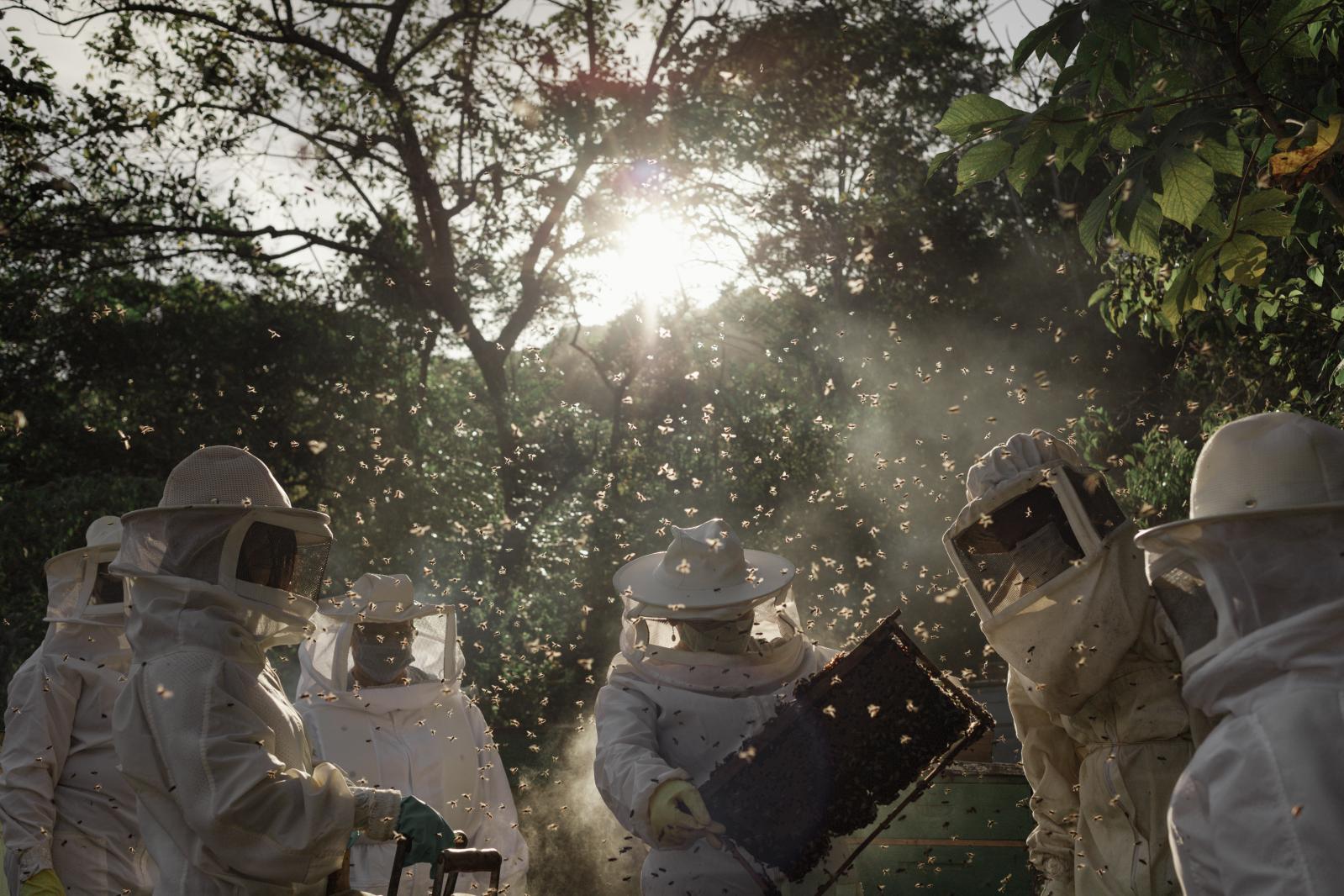
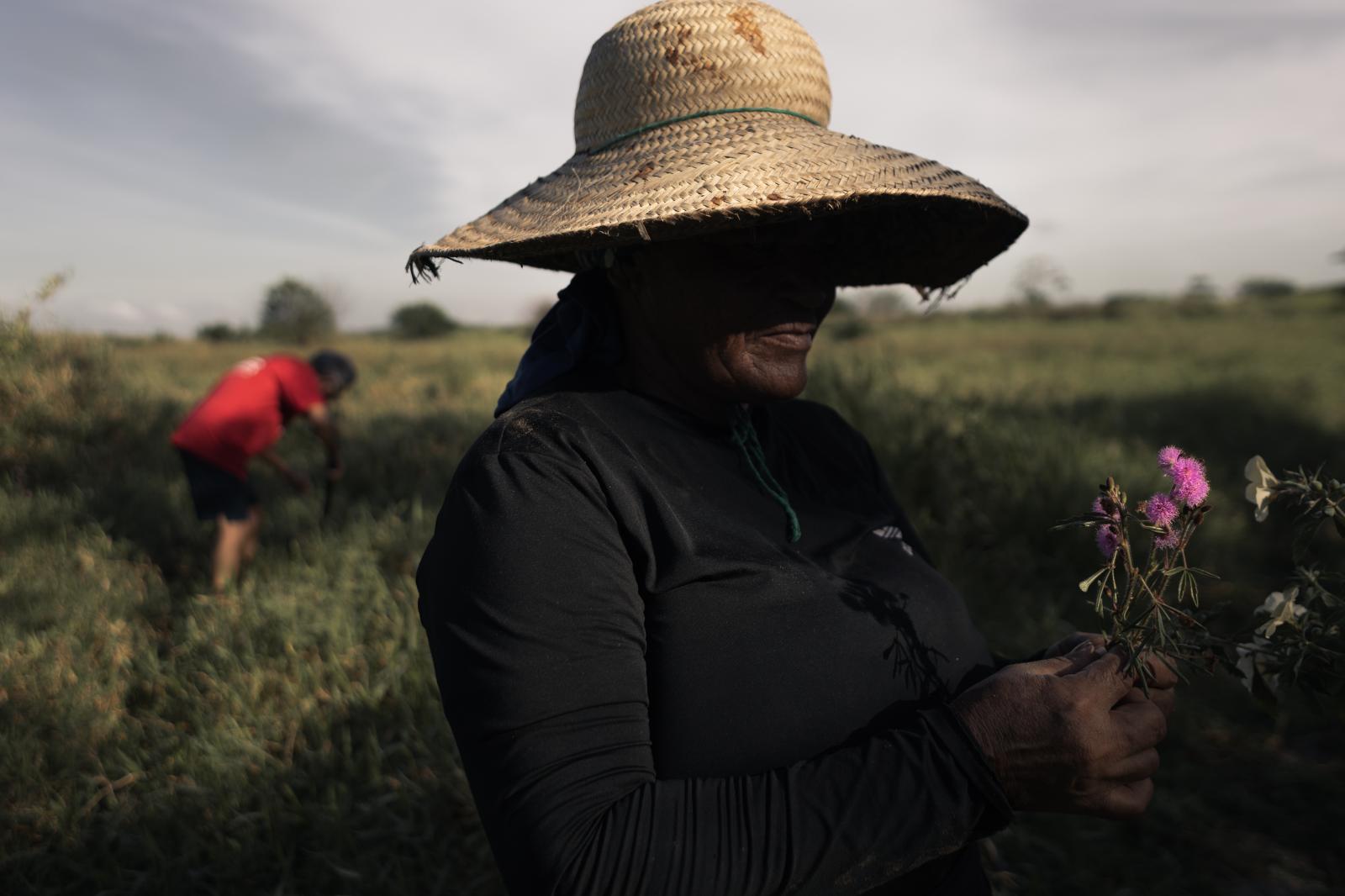
![[Left] Pollen from flowers that...anaging native bee populations.](https://cloud.visura.co/15524.1153987.story_x_large.jpg)
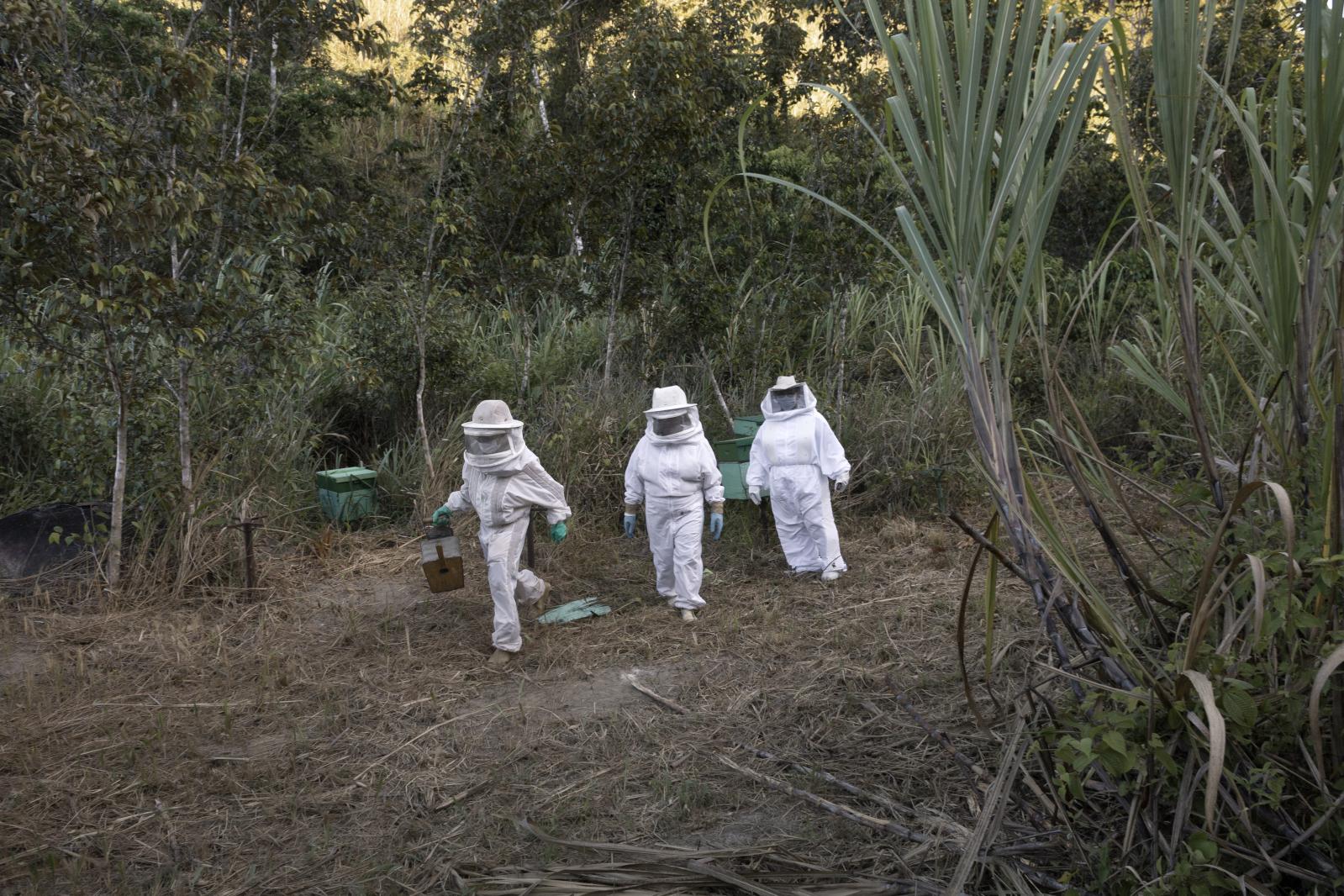


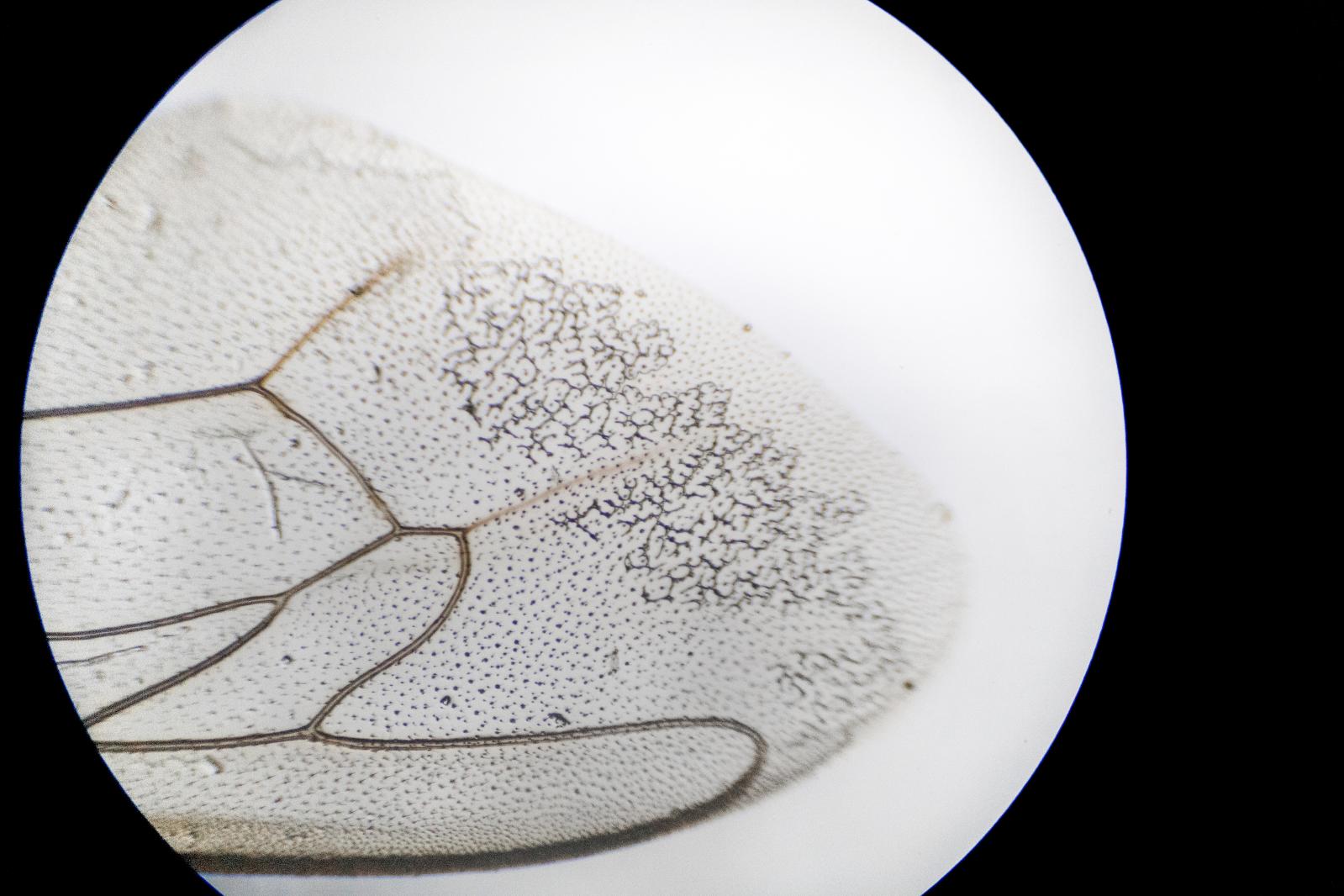
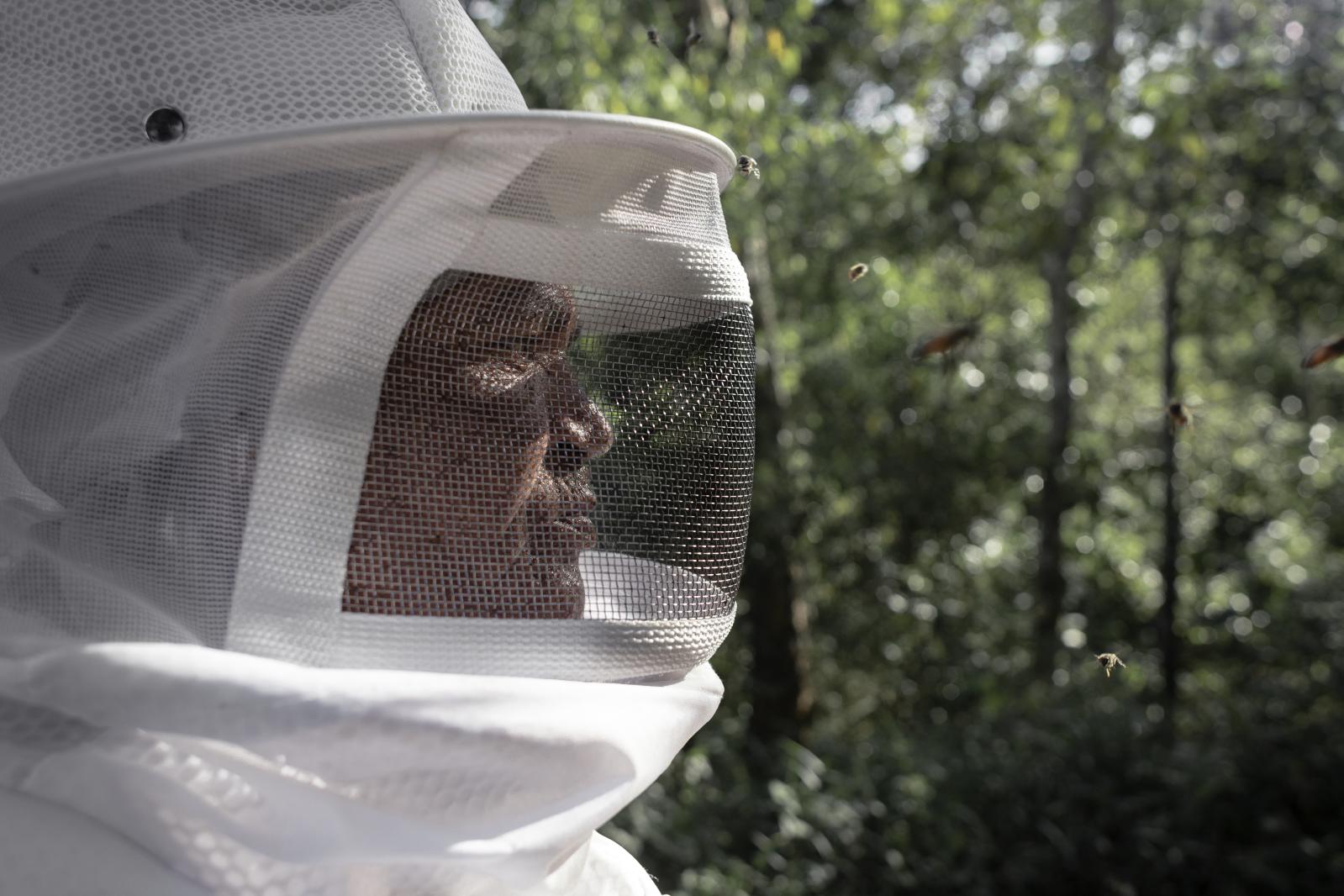
![[Left] Various flower species g...re for the same quantity sold.](https://cloud.visura.co/15524.1192845.story_x_large.jpg)
![[EN] Women beekeepers work in t...sticides dispersed in the air.](https://cloud.visura.co/15524.1154014.story_x_large.jpg)

